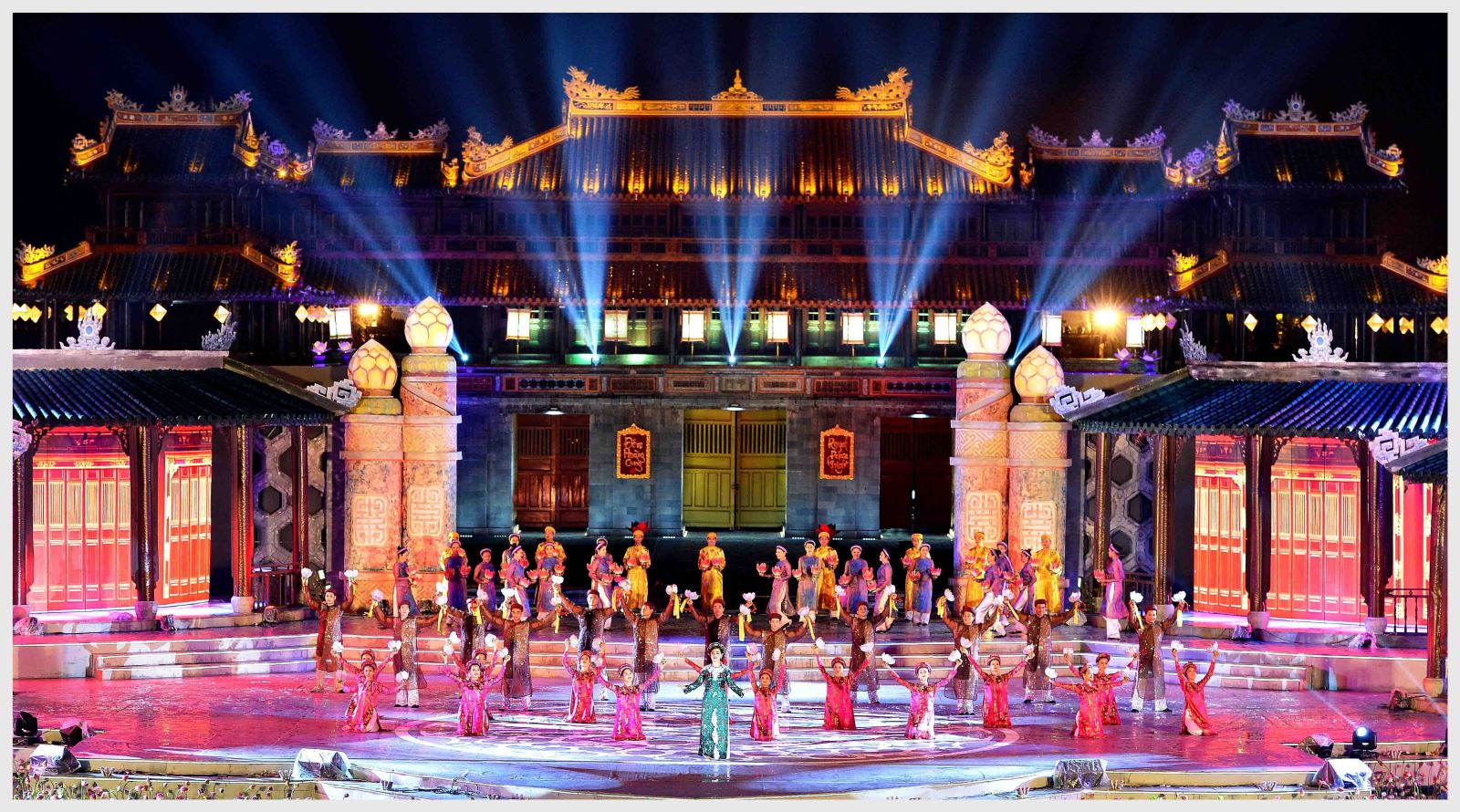
Theoretical basis of cultural development associated with economic development and social development
The dialectical relationship between cultural development and economic and social development is set out in Marxist-Leninist theory, according to which culture is a part of the superstructure, based on the development of the core infrastructure which is the economy, but culture also reflects the development of the economy, has a great impact on the economy and social existence. To create a synchronous and comprehensive development of a socio-economic form, the development of culture must be given due attention.
President Ho Chi Minh emphasized the position, role and importance of culture in the development of a nation: "In the process of national construction, there are four issues that must be paid attention to and given equal importance: politics, economics, society and culture" (1) . Resolution of the 9th Central Conference, Session XI (2014) continued to affirm: "Culture must be placed on par with politics , economics and society" (2) . Regarding the main goals in national development, the Platform for national construction in the transitional period to socialism (supplemented and developed in 2011) determined: The socialist society that our people build is a society : Rich people, strong country, democracy, fairness, civilization; owned by the people; with a highly developed economy based on modern productive forces and appropriate progressive production relations; with an advanced culture, imbued with national identity; People have a prosperous, free, happy life, with conditions for comprehensive development (3) .
The need to closely link cultural development with economic and social development is reflected in the following three contents:
Firstly, culture is the spiritual foundation of socio-economic development.
Culture is the spiritual foundation that plays a guiding role in economic and social development. The United Nations Educational, Scientific and Cultural Organization (UNESCO) when launching the “Cultural Decade for World Development” affirmed: Culture must stand at the center of development and development must be initiated and spread by culture. Culture plays a role in guiding economic development with humanistic goals, regulating social development with a system of cultural values and standards. President Ho Chi Minh once emphasized: Culture must light the way for the nation.
Second, culture is the goal of socio-economic development.
According to the United Nations' sustainable development perspective, the pillars of sustainable development include: economy, society, environment, in which society includes many areas with culture as its core. Therefore, to develop the country sustainably, economic and social development must go hand in hand with cultural development. Our Party sets the goal of "building a Vietnam with rich people, strong country, democracy, equity, and civilization". The goal of "rich people", "strong country", although mainly referring to the economic aspect, cannot fail to mention the cultural factor when culture helps people's lives to be increasingly improved spiritually, thereby helping to transform into material strength, increasing the "soft power" of the country in the international arena. To achieve the goal of "democracy, equity, civilization", it is impossible not to focus on cultural development, social development, ensuring harmony between economic, cultural, and social aspects.
Third, culture is the driving force of socio-economic development. Not only is it the spiritual foundation and goal of socio-economic development, culture is also a great driving force promoting socio-economic development. Culture has the power to spread and deeply influence other fields, permeate social life, create a healthy cultural environment for economic and social development. Culture is also considered a great resource, a potential "capital" to exploit, develop the economy, promote cultural industries, and contribute to the overall development of the country.
Economic development is understood as the process of growth and improvement of the level of development of the economy, reflected in the following aspects: increasing the total income of the economy and average income per capita; shifting the economic structure in a more progressive and reasonable direction; growth of new economic sectors, reducing dependence on traditional economic sectors; increasing the efficiency and competitiveness of the economy; applying scientific and technological advances, optimally using resources; improving labor productivity, efficiency of production processes; high-quality human resources, ensuring long-term and stable economic growth; connecting with global economies, creating conditions for the export of goods and services, foreign direct investment and international economic relations.
Good economic development will create material conditions for social and cultural development. Economic development creates job opportunities, increases people's income , reduces unemployment and poverty, and improves living standards. Economic development also creates conditions for people to participate more in the process of creating, producing, disseminating and enjoying cultural values and activities.
“Rich people, strong country” means that the people’s lives are rich, the national strength is strong, leading to the prosperous development of each family as well as the whole country, creating economic, cultural, social, defense, security, and foreign affairs strength, helping to enhance the position, prestige, and stature of Vietnam in the international arena. Economic development is the method and tool to realize the goal of “rich people, strong country”, GDP growth, and increase per capita income . This is also an important condition for us to maintain peace, independence, and national sovereignty.
Social development on the basis of economic and cultural development is to promote the development of all areas of social life, from education, training, health to Ensuring social security and social welfare, contributing to improving people's quality of life. Social development also helps to solve social problems in a humane way, harmonizing between social classes, reducing the gap between rich and poor, reducing inequality, supporting ethnic minorities, caring for vulnerable groups, ensuring social justice towards social progress, ensuring stability and sustainable development of society. Social development will help to resolve social conflicts, avoid social conflicts, contribute to ensuring human security and ultimately liberating and developing people comprehensively.
Cultural development is the comprehensive and synchronous development of the components of national culture, improving efficiency in all areas of cultural activities, from human development, focusing on building ideology, ethics, and lifestyle, to building a cultural environment; preserving and promoting the value of cultural heritage; developing literature and art; developing science and technology; education and training; on culture and art, mass media; international cultural exchange and cooperation. Cultural development is closely linked with economic and social development, contributing to the synchronous development of both the material and spiritual life of the people; sustainable development of all aspects of the country; improving the intellectual level and quality of human resources; promoting the development of science and technology; consolidating discipline and professional ethics; promoting socio-economic development. These are also the necessary and sufficient conditions to realize the goal of "democracy, fairness, civilization".
“Democracy” is demonstrated in the fact that the people are truly masters in all aspects according to the motto “people know, people discuss, people do, people check, people supervise, people enjoy”; it is the inheritance and development of the ideology of “taking people as the root”, gathering the strength of the entire people in the work of building and defending the Fatherland. Today, building and consolidating the goal of democracy is contributing to mobilizing all social resources, joining hands to build and develop a prosperous and happy country.
“Equity” is expressed in political, economic, cultural and social life to eliminate injustice and bias in the distribution of labor results, income, rights and responsibilities, and enjoyment of social benefits, etc. “Equity” is also expressed in gender equality, equality in career advancement, and opportunities for personal development. The goal of equity in Vietnam today is expressed in reducing the gap between rich and poor, and social polarization; Human Development Index; statistical measure of economic inequality in the population (GINI); the level of satisfaction of basic human needs, etc.
“Civilization” means that the country is increasingly developing in a progressive, humane, modern direction, keeping up with developed countries. Civilization is not only expressed in material life, living facilities, scientific and technological achievements, but is also expressed in spiritual life, expressed in the fields of literature, art, political and social activities, education and training, law enforcement, lifestyle, living habits, and behavioral culture. Civilization is also the result of absorbing the quintessence of human culture combined with the good values of national culture.
Thus, the coherent and synchronous development of all three economic, cultural and social fields is the condition, premise and foundation to ensure the implementation of the goals of "rich people, strong country, democracy, equality and civilization", thereby improving the material and spiritual life of the people, building a prosperous and happy Vietnam.
The current state of cultural, economic and social development in our country
Cultural development associated with economic development basically includes the following contents: Building values, standards and cultural environment in the economy; increasing the content of culture, science and technology in the economy; exploiting cultural resources in economic development; building human resources for the economic development process. The practice of nearly 40 years of innovation in our country shows the correctness of linking cultural development with economic and social development. Building a healthy cultural environment in economic activities is increasingly focused on. Business culture, corporate culture, and entrepreneur culture are focused on building, expressed in aspects such as business philosophy, mission, vision, core values, business ethics, compliance with the law, and corporate social responsibility. Vietnam is seeing more and more businesses affirming their names, reputations, brands, and making positive contributions to society, such as Vinamilk, Viettel, FPT, Vingroup, TH Truemilk, etc. The team of entrepreneurs is growing stronger, linking business interests with community interests. Cultural content, creativity, science and technology are affirmed in products, services and economic activities. In recent years, Vietnam's Innovation Index (GII) has continuously improved.
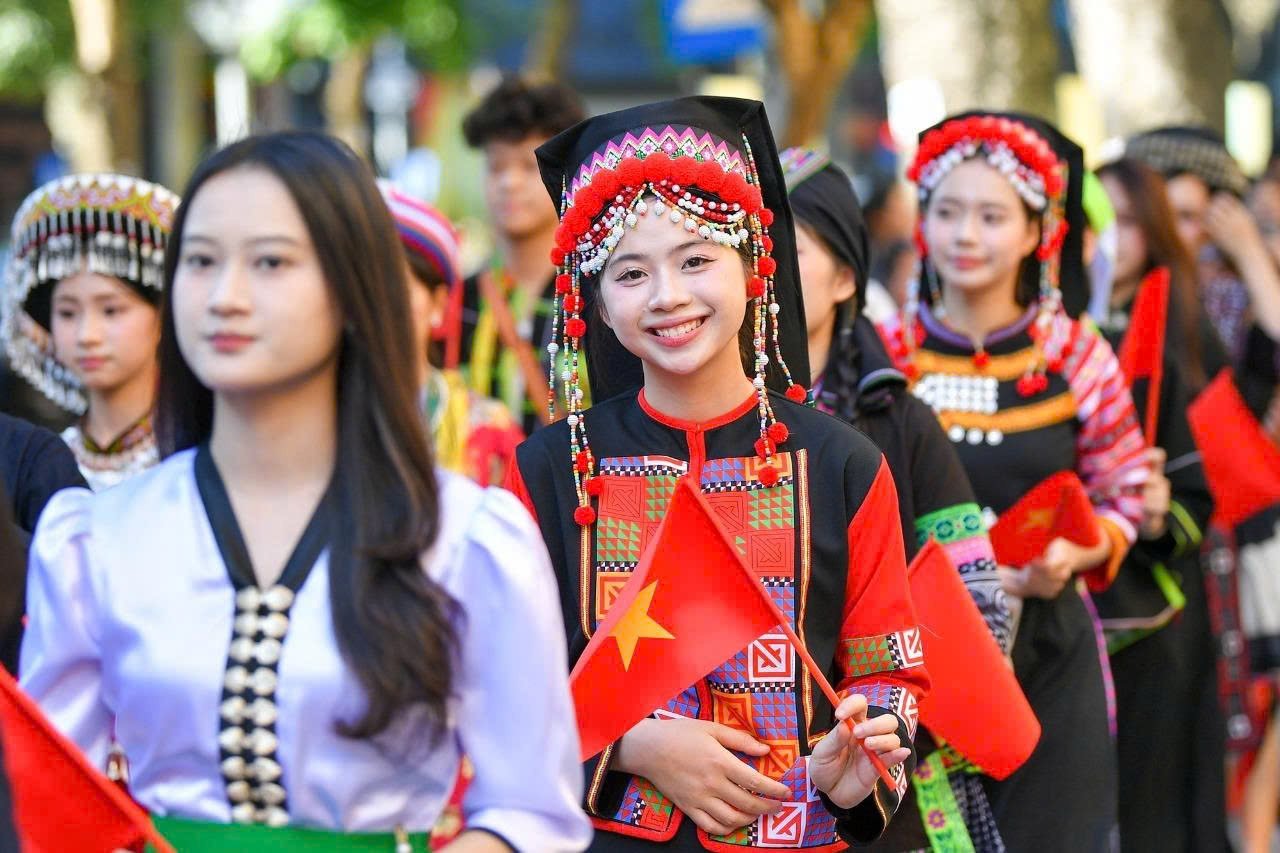
Implementing Resolution No. 33 -NQ/TW, dated June 9, 2014, of the 9th Central Conference, Session XI "On building and developing Vietnamese culture and people to meet the requirements of sustainable national development ", culture is increasingly focused on as an important resource serving economic development. "Strategy for developing cultural industries to 2020, vision to 2030" (approved by the Prime Minister in Decision No. 1755/QD-TTg, dated September 8, 2016) sets the target that by 2020, revenue from cultural industries will contribute about 3% of GDP, by 2030 about 7% of GDP, but before the COVID-19 pandemic, in 2018, cultural industries contributed 3.61% of GDP, reaching the target 2 years earlier than the target set in the Strategy (4) .
Regarding cultural development associated with social development, the level of creativity, enjoyment and cultural consumption of the people is increasing. The social welfare and security system is respected and expanded step by step. People's access to information is significantly improved. Gender equality has made much progress, the rate of women participating in the National Assembly and holding important positions in the political system is increasing. Cultural development brings many jobs and income to the people, especially in the field of promoting the value of cultural heritage, developing traditional craft villages, cultural tourism, contributing to hunger eradication, poverty reduction, and improving people's living standards. Cultural factors are gradually becoming the foundation for regulating social relations and social behavior. Vietnam's Human Development Index (HDI) is increasing. Since 2008, Vietnam has completed most of the millennium goals set by UNESCO by 2015.
In nearly 40 years of renovation, the connection between cultural development and economic and social development has been clearly demonstrated through the outstanding achievements that the country has achieved. In 2024, Vietnam's GDP reached 476.3 billion USD, GDP per capita reached 4,700 USD (5) , many times higher than in the early years of renovation. The multidimensional poverty rate decreased rapidly to 4.06 % in 2024 (6) . New economic forms and fields with high cultural content have emerged, such as green economy, circular economy, sharing economy, semiconductor industry, artificial intelligence (AI), clean energy...
The fields of social security, health, education and training, science and technology, environmental protection, and human development have all had many positive changes. Achievements in economic, cultural, and social development help Vietnamese people develop physically, intellectually, morally, and professionally, leading to an increasingly prosperous and happy life, and achieving social progress and justice. The average income of workers has improved, increasing by an average of 7% - 8% per year in the period 2013 - 2023. Medical work and public health care have been strengthened, and the quality of medical examination and treatment services has been improved. Through labor, employment, social insurance, and unemployment insurance policies, we have had great success in controlling the increasing gap between the rich and the poor . The system of basic and essential social services has been focused on, demonstrating on the sides, such as universal education; vocational training program for rural workers; building a basic health care system and preventive health care, especially in remote areas, ethnic minority areas; housing program for disadvantaged and vulnerable groups, industrial park workers; clean water in rural areas; information and communication system at the grassroots level... Many welfare and social security policies have been implemented, such as tuition exemption and reduction policies and cost support for poor students; support for preschool education development; support for educational development for children of ethnic minorities; support for scholarships and means, learning materials to implement educational policies for people with disabilities; preferential policies for people with revolutionary contributions; support for people in especially difficult circumstances, people in areas affected by natural disasters, storms, floods, droughts, severe cold, epidemics...
It can be affirmed that, in nearly 40 years of renovation, Vietnam has gradually implemented well the policy of linking cultural development with economic and social development; economic growth goes hand in hand with social progress and equity, ensuring development opportunities for everyone, contributing to realizing the principle of "no one is left behind" in the development process.
Some solutions to improve the effectiveness of linking cultural development with economic and social development
The 13th Party Congress pointed out: “ Culture has not received the same attention as economics and politics, and has not truly become an endogenous resource and driving force for the country's sustainable development. The role of culture in human development has not been properly determined... The cultural and social environment continues to be polluted by social evils, corruption, and negativity. The gap in cultural enjoyment between regions and areas is still large; cultural life in ethnic minority areas, remote and isolated areas still faces many difficulties... Investment in culture is not at the right level, is still scattered, and is not very effective. There are no effective solutions to prevent and repel the serious degradation in some aspects of culture, ethics, and lifestyle, causing social outrage” (7) . The cultural industry is in the early stages of development, so it still faces difficulties. The market for cultural products and services develops in a fragmented and spontaneous manner, lacking intermediary institutions and pilot models to mobilize contributions and responses from organizations and businesses. Many businesses have not complied with the law. Corruption and negativity among a number of officials and party members in the political system have been causing public outrage.
To overcome the above shortcomings, it is necessary to promote the implementation of solutions to improve the effectiveness of the connection between cultural development and socio-economic development as follows:
Firstly , raising awareness of the role of cultural development in economic and social development. The Party's guidelines and policies, the State's policies and laws always emphasize that culture is the spiritual foundation of society, both the goal and the driving force for socio-economic development, but in reality, many Party committees, authorities, businesses and people have not fully recognized the role and importance of cultural development in economic and social development as well as the relationship with national development goals. Relevant agencies when building the legal system, economic, social and cultural policies have not paid full attention to this connection. Therefore, it is necessary to raise awareness to have appropriate actions and decisions, and strictly implement them at all levels, in all sectors and in the whole society.
Second , innovate the Party's leadership method in leading and directing cultural development with socio-economic development; not only in setting out correct policies and guidelines, but also in the capacity to lead those policies and guidelines to quickly enter practical life; not only in issuing directives and resolutions, but also in implementing, checking and supervising the implementation of those directives and resolutions.
Reorganize the apparatus, implement the two-level local government model in the direction of streamlining, compactness, strength, efficiency, effectiveness and efficiency. Improve the quality of cadres and party members, especially strategic cadres to meet the development requirements in the period of industrialization, modernization, market economy and international integration. Continue to propose mechanisms and policies to promote and attract talents to work in the political system. Promote scientific research, summarize theories, improve the quality of ideological and academic struggles. Refer to international experiences in economic development, cultural development and social development.
Third , promptly review, amend, supplement and perfect the legal system, creating motivation and conditions for the private economic sector and the whole society to participate more in cultural, economic and social development. Perfecting economic, cultural and social institutions, focusing on issues of population and development, ensuring social security, human security, universal health care, vocational education, support for disadvantaged groups, etc., in accordance with the market economy mechanism, international integration and the Fourth Industrial Revolution. Creating a free and democratic environment for cultural and artistic creation. Transforming the management mechanism from licensing, "asking - giving" to a "serving the people" mechanism to liberate the creativity of artists, encourage the diversity of cultural expressions, and promote the development of cultural production forces.
Fourth , improve the quality and efficiency of state management agencies. Focus on management functions, build a legal corridor and appropriate policies to help the economy operate effectively. Create conditions for the formation of economic groups and large private enterprises alongside small and medium enterprises. Focus on increasing the cultural and knowledge content in all stages of administration, production, business, trade, investment, etc. as well as related ecosystems, such as science and technology; education and training; resources and environment; press, media, etc. Build a professional, honest, and friendly public service culture towards people and businesses. Complete the e-Government platform to improve the effectiveness and efficiency of the state administrative apparatus, form a national database system on key sectors and fields to meet the requirements of digital transformation and digital society. Coordinate synchronously and effectively among ministries, departments, branches and localities in strengthening the connection between cultural development and economic and social development. Clearly define the subjects and responsibilities of relevant parties in the coordination process. Improve the effectiveness of law enforcement. Strengthen the accountability of policy-making and social service provision agencies through supervision and dialogue in various forms. Innovate the supervision of National Assembly agencies and socio-political organizations to ensure the connection, connection and effectiveness between law-making and law enforcement. Resolutely and strictly handle violations in accordance with the provisions of the law, without "prohibited areas", exceptions, "immunities", and avoid the phenomenon of "immunity" to the law.
Fifth , improve the quality of human resources to meet the requirements of sustainable national development in the new period. Focus on training and fostering human resources, especially high-quality human resources in leadership, management, research, teaching and organization of economic, cultural and social activities. Promote international cooperation in harmoniously linking economy, culture and society, contributing to realizing the goal system of "rich people, strong country, democracy, fairness and civilization"./.
----------------------
(1) Ho Chi Minh: On culture , Ho Chi Minh Museum, Hanoi, 1997, p. 11
(2) Documents of the 9th Conference of the 11th Central Executive Committee , Central Party Office, Hanoi, 2014, p. 48
(3) Platform for national construction during the transition period to socialism (Supplemented and developed in 2011), National Political Publishing House Truth, Hanoi, 2011, pp. 13-14
(4) The Cong: "For culture to truly become a developed industry - Part 1: Correct policy", Electronic Information Portal of the Ministry of Culture, Sports and Tourism , April 1, 2024
(5) Vu Dung: "Vietnam's GDP is estimated to increase by 7.09% in 2024", People's Army Electronic Newspaper, January 6, 2025
(6) Reporter: "National multidimensional poverty rate in 2024 is 4.06%", Nhan Dan Electronic Newspaper, February 10, 2025
(7) Documents of the 13th National Congress of the Party , National Political Publishing House Truth, Hanoi, 2021, vol. I, pp. 84, 85
Source: https://tapchicongsan.org.vn/web/guest/van_hoa_xa_hoi/-/2018/1173702/phat-trien-van-hoa-gan-voi-phat-trien-kinh-te-va-phat-trien-xa-hoi--qua-trinh-tat-yeu%2C-huong-dich-cua-he-muc-tieu-%E2%80%9Cdan-giau%2C-nuoc-manh%2C-dan-chu%2C-cong-bang%2C-van-minh%E2%80%9D.aspx





![[Photo] Close-up of heavy damage at the school located on the banks of the Ban Thach River](/_next/image?url=https%3A%2F%2Fvphoto.vietnam.vn%2Fthumb%2F1200x675%2Fvietnam%2Fresource%2FIMAGE%2F2025%2F11%2F26%2F1764152130492_ndo_bl_img-8188-8805-jpg.webp&w=3840&q=75)

![[Photo] VinUni students' emotions are sublimated with "Homeland in the Heart: The Concert Film"](/_next/image?url=https%3A%2F%2Fvphoto.vietnam.vn%2Fthumb%2F1200x675%2Fvietnam%2Fresource%2FIMAGE%2F2025%2F11%2F26%2F1764174931822_10-3878-jpg.webp&w=3840&q=75)
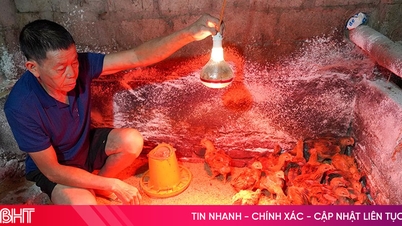

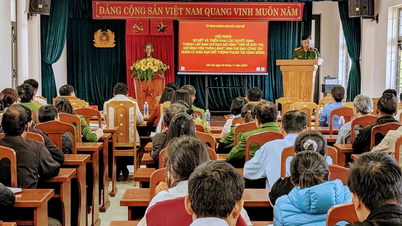

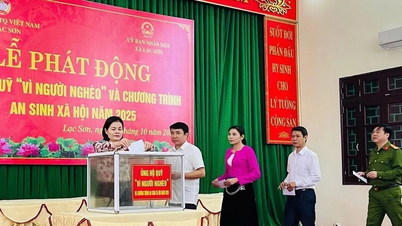

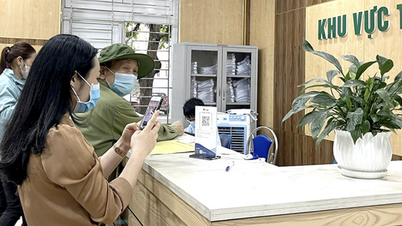

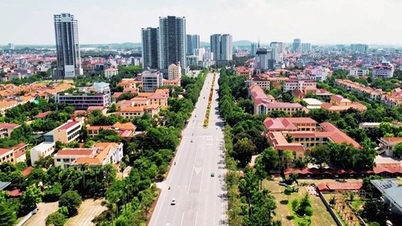
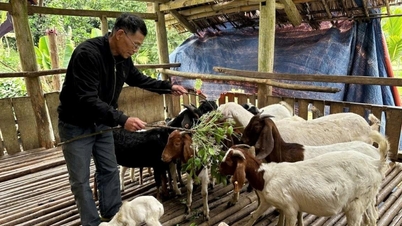

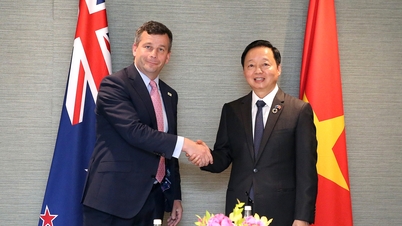

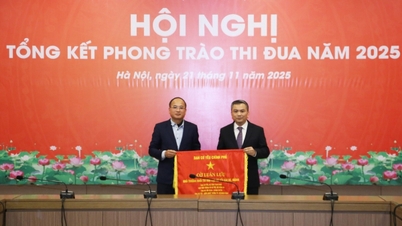

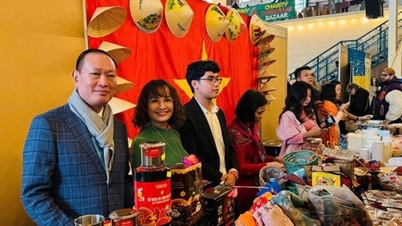
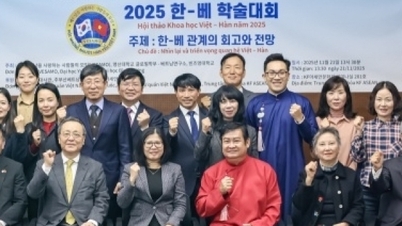
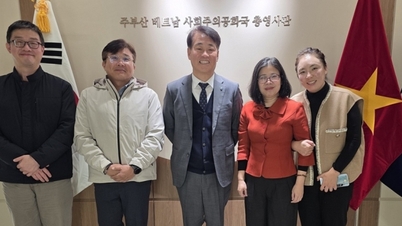
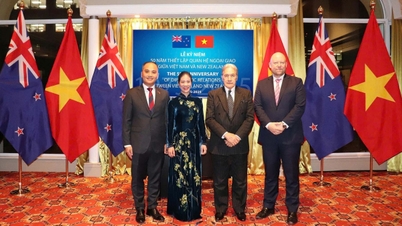





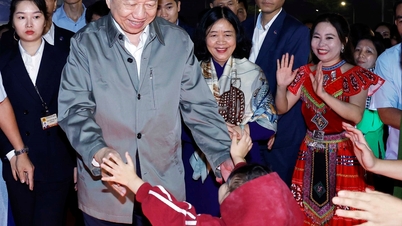
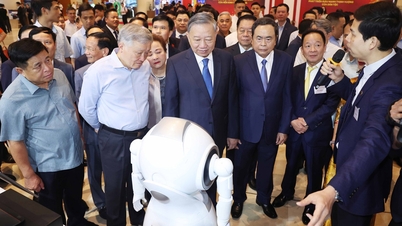
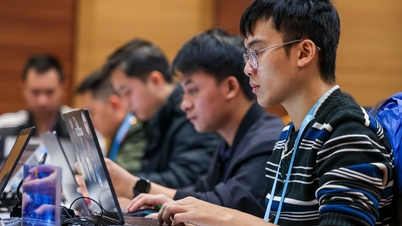
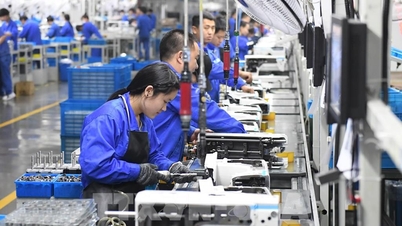


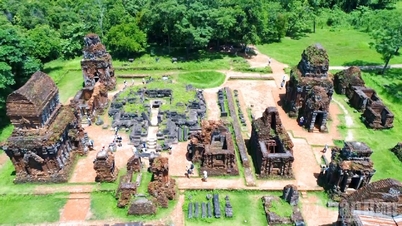

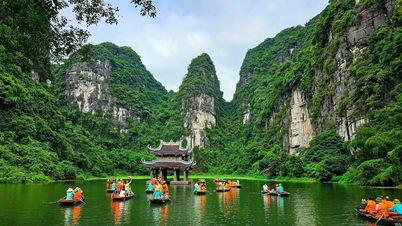
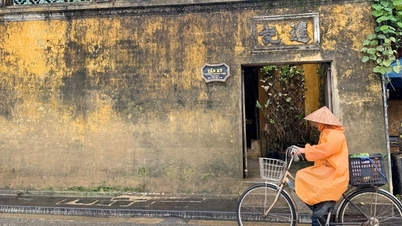

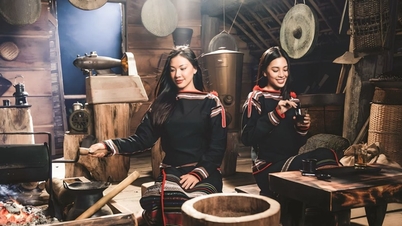

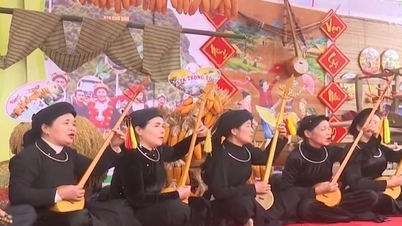

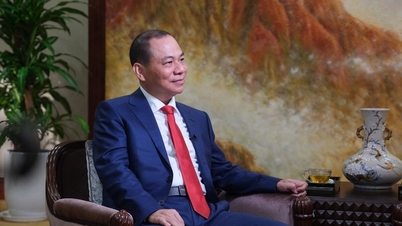

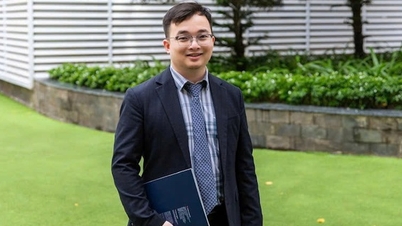

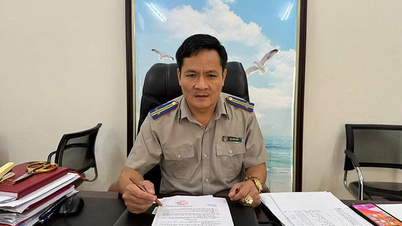

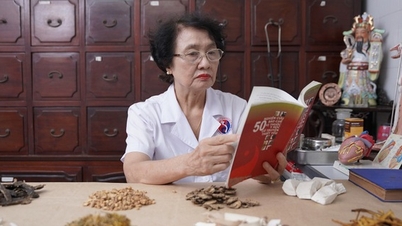

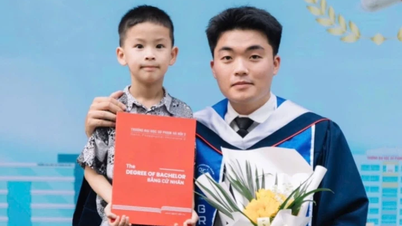

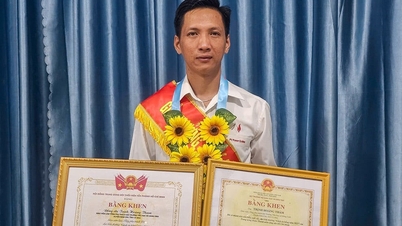

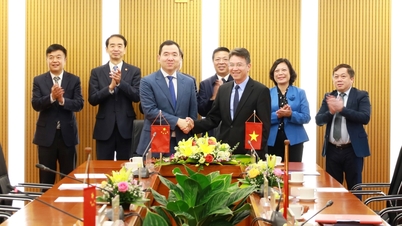


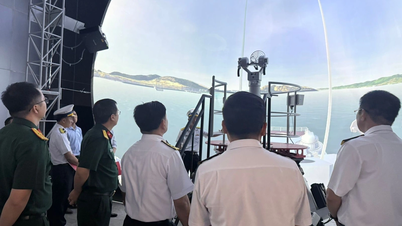
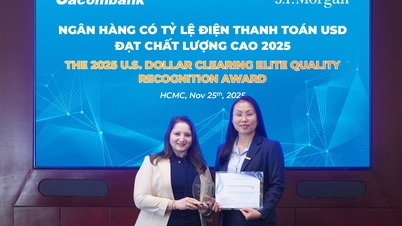

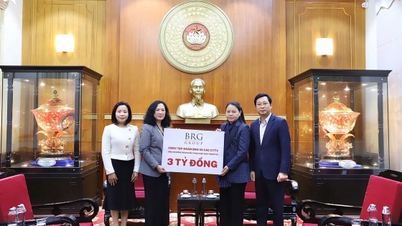

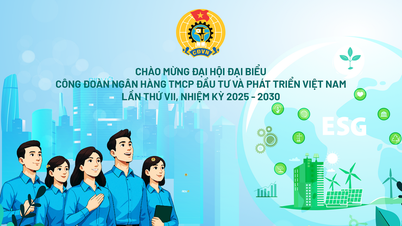






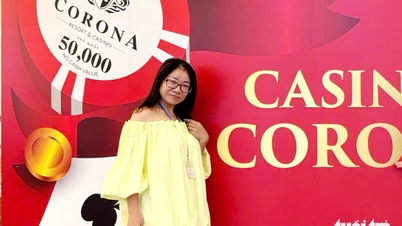

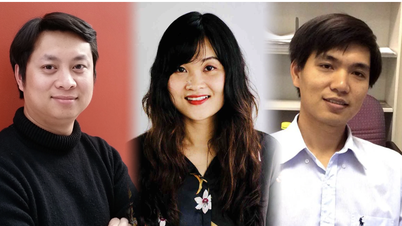

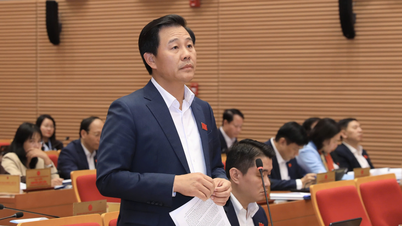
![[Photo] Opening of the 28th Session of the Hanoi People's Council](https://vphoto.vietnam.vn/thumb/402x226/vietnam/resource/IMAGE/2025/11/26/1764155991133_image.jpeg)



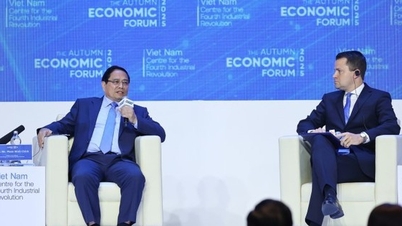
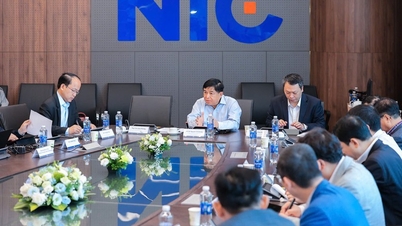

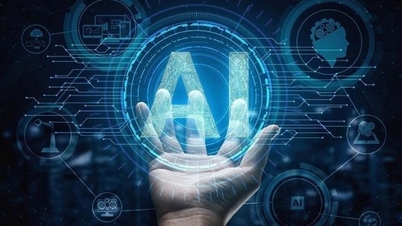

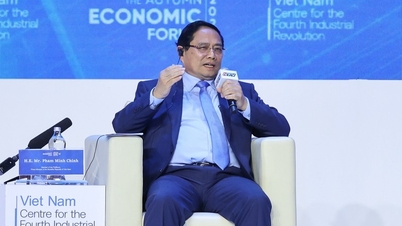
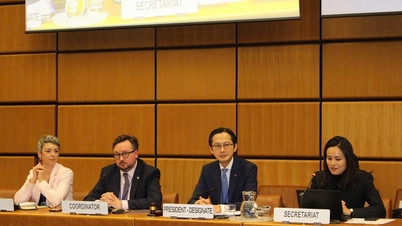


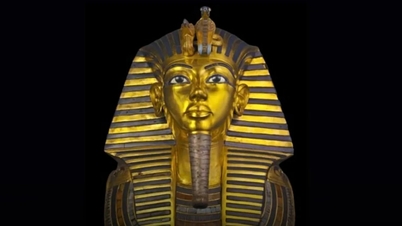
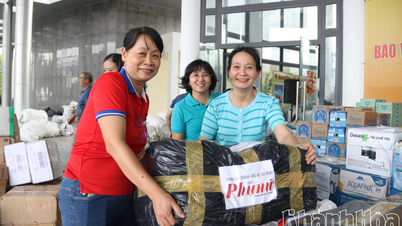



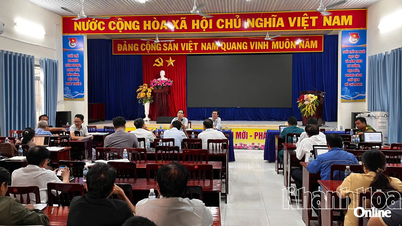











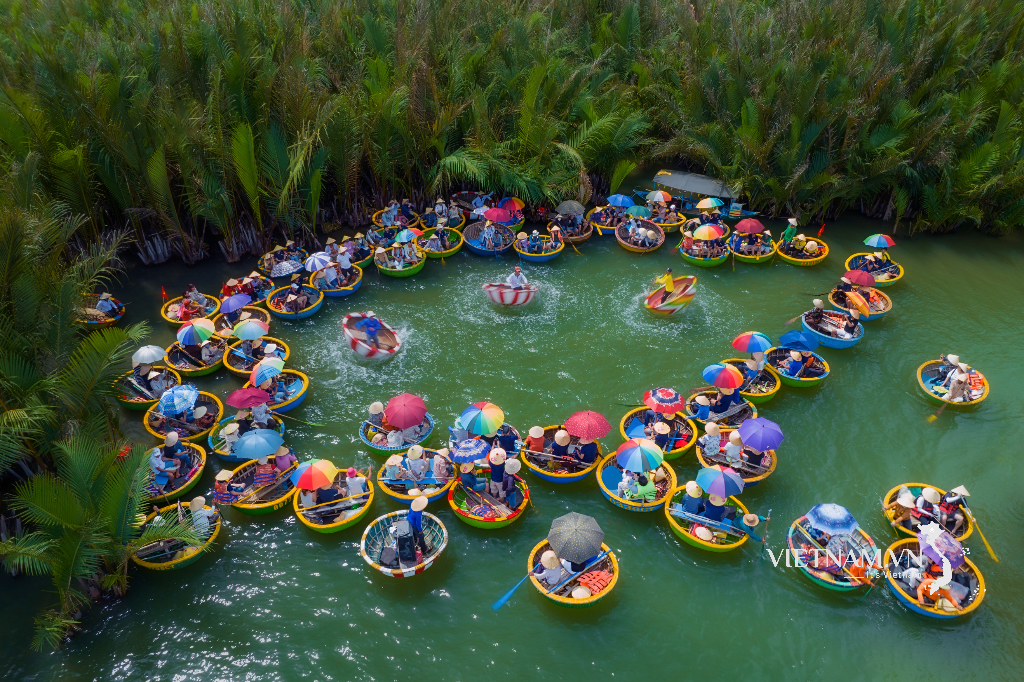

Comment (0)